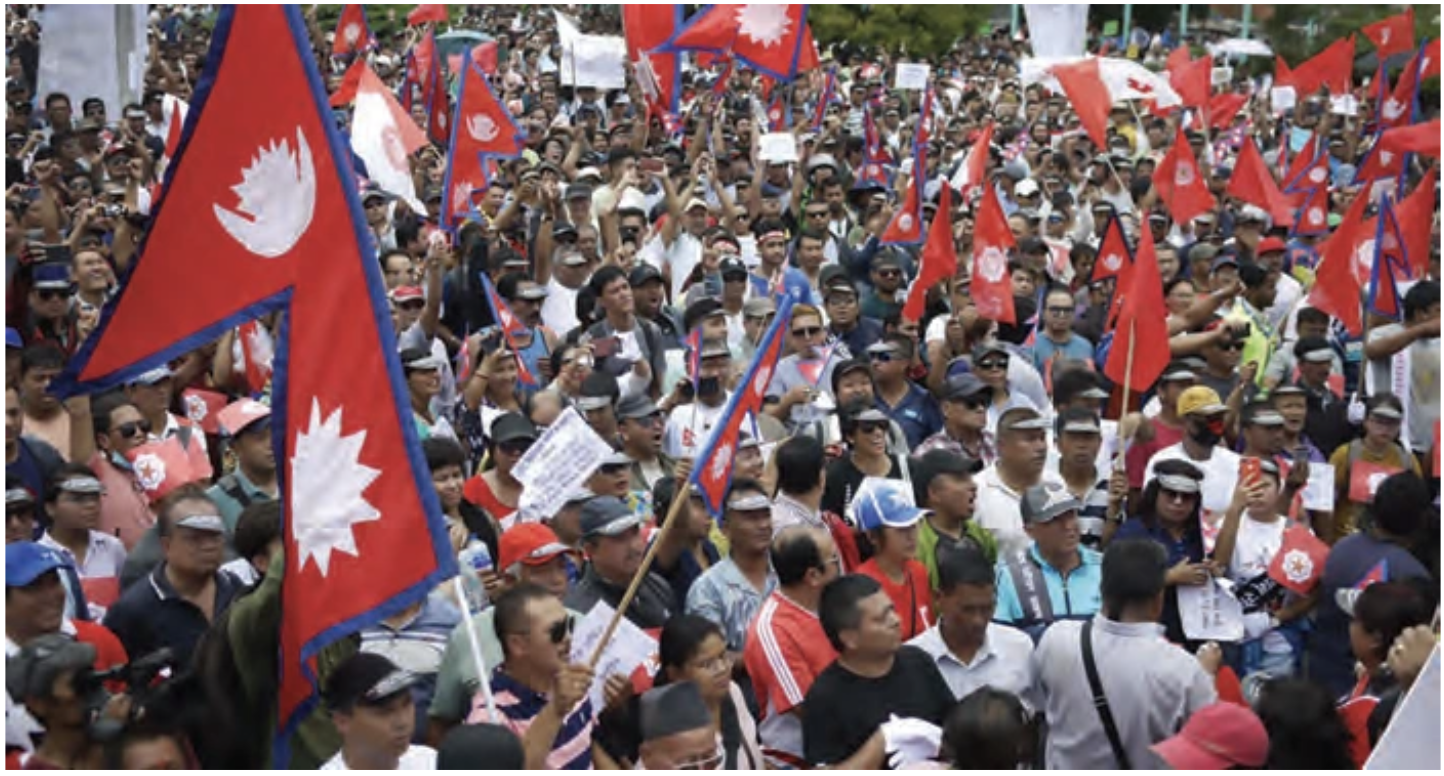February 1st, 2023 marks two years since Myanmar's military, Tatmadaw, seized control of Myanmar. The coup d'état brought political and economic uncertainty to Southeast Asian countries. Since ousting Aung San Suu Kyi’s democratically elected government, the military has cracked down on the civilian population opposing the coup and filled the country’s prisons with people critical of its rule.
Myanmar’s Economy Post-Coup
After the overthrow of the democratically elected government, Myanmar experienced a significant drop in its output to almost 18% in 2021. The World Bank forecasts that the economy will grow around 3% in 2023, with some strength in the agriculture and textile industries (see Figure 1). Yet, this growth is significantly smaller than other ASEAN nations. The humanitarian crisis creates a hostile environment for foreign direct investments and local businesses. Foreign investors and businesses have existed, and domestic businesses were forced to convert their foreign exchange accounts into Myanmar kyat. Myanmar's currency has lost almost half its value since the military takeover, pushing up prices for imports and causing inflation. The military government has stymied a decade of political reforms and economic growth. According to the report by the World Bank, the poverty rate has nearly doubled compared to March 2020, with around 40% of the population, or approximately 22 million people, living below the national poverty line in 2022. While the reopening of China might help Myanmar’s economic recovery in 2023, the government has a long way to go before reaching its former economic level pre-coup.
Comparing Myanmar to Other ASEAN countries
The Asian Development Bank (ADB) predicted economic growth in Southeast Asia to be 5.5% in 2022, making the ASEAN region to be the fastest-growing region in 2022. Specifically, growth is projected at slightly more than 5% in Cambodia, Indonesia, and Malaysia, and 6.5% in the Philippines. Vietnam has a greater growth of 7% from trade diversion from China’s Zero COVID policy. Robust consumption and exports, combined with high vaccination rates, border reopenings, and the removal of pandemic restrictions helped prompt strong economic growth in these nations. In contrast, Myanmar had a growth of only 2% in 2022 due to the political and humanitarian crisis. Myanmar is expected to be further isolated from the international community and its regional partners in ASEAN.

Continued Sanctions by The Five Eyes
The Five Eyes (an alliance between Australia, Canada, New Zealand, the United Kingdom, and the United States) coordinated to impose further sanctions on more individuals tied to a military junta on the two-year anniversary of the takeover. Washington D.C. imposed sanctions on six individuals and three entities linked to the regime’s efforts to generate revenue and procure arms, according to the U.S. Department of State. The sanctions target the managing director and deputy managing director of Burma’s Ministry of Energy, Myanma Oil and Gas Enterprise (MOGE), which is the junta’s single largest revenue-generating state-owned enterprise, according to the U.S. Treasury. Additionally, the U.S. sanctioned the Union Minister of Energy, who the Treasury said represents Myanmar’s government in international and domestic energy sector engagements and manages the state-owned entities involved in the production and export of oil and gas.
Subsequently, Canada’s Ministry of Foreign Affairs announced it was sanctioning six individuals and prohibiting the export, sale, supply, or shipment of aviation fuel. Australia targeted members of the State Administrative Council - the military junta that runs the country - and two military-controlled economic entities. The UK sanctions focus on companies supplying the Myanmar military with aviation fuel used to carry out bombing campaigns against its own citizens.
Pressure Mounts on ASEAN to Act on Myanmar
In April 2021, ASEAN devised a “Five-Point Consensus” in which the nine ASEAN leaders and Senior General Min Aung Hlaing agreed to an immediate end to violence in the country, dialogue among all parties, and the appointment of a special envoy in exchange for humanitarian assistance by ASEAN. While the envoy was appointed, Min Aung Hlaing has continued to crack down on opponents with military rule and arbitrarily arrest political opponents. As the economy remains low and isolated, Myanmar will be more dependent on China for economic relations and on Russia for defense technologies. Citizens of Myanmar would be the biggest victims as unemployment rises along with inflation. The increasing number of refugees will impact Myanmar's border countries as well. The lack of progress in Myanmar tests ASEAN's credibility, and they must work to find solutions to the crisis. As long as the junta manages the economy, citizens in Myanmar as well as ASEAN economy will continue to surfer. It is crucial for the international community to continue advocating for a democratic rule in Myanmar and allow the civilian government to restore the economy.








.svg)